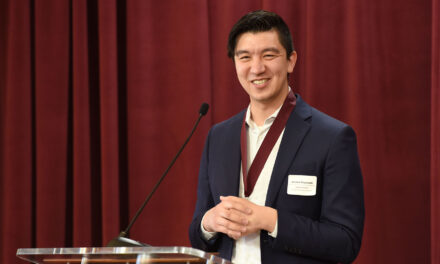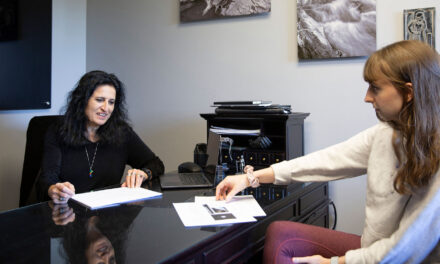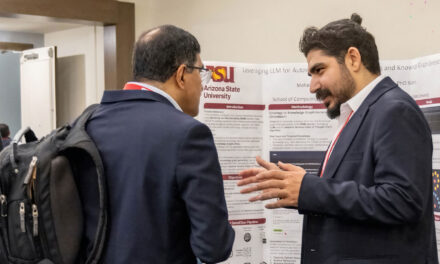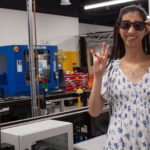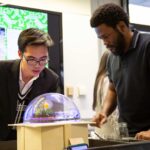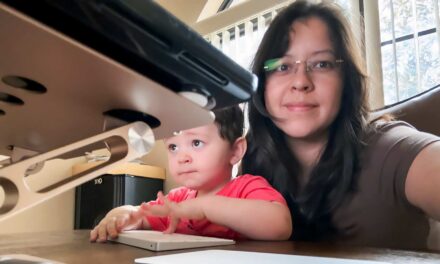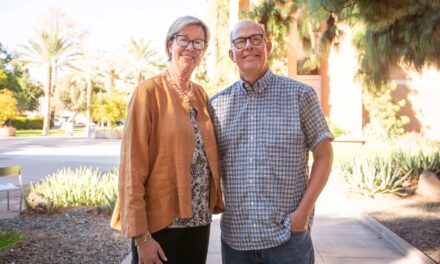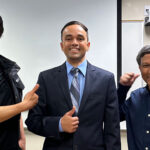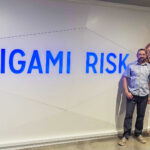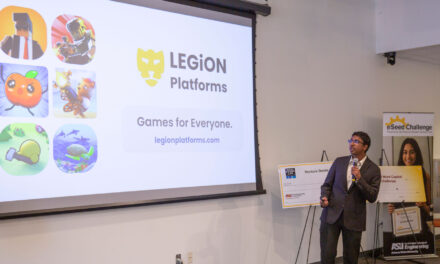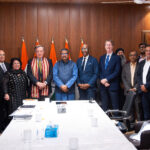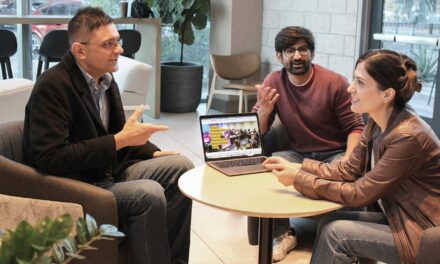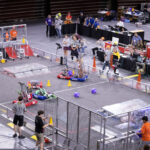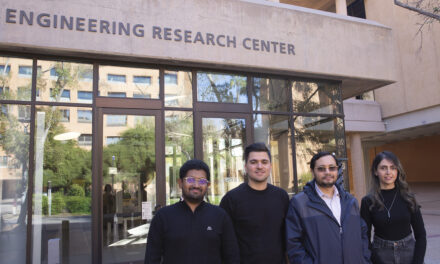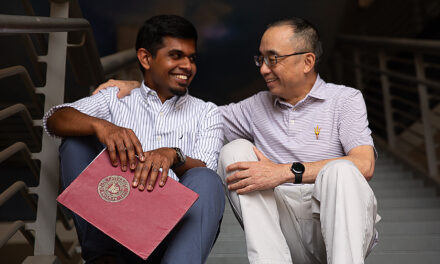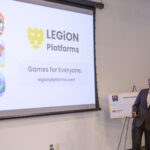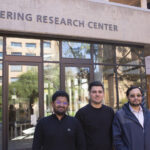
Famed systems engineer inspires ASU to tackle global problems
G. Don Taylor spoke at the second annual Douglas C. Montgomery Distinguished Lecture
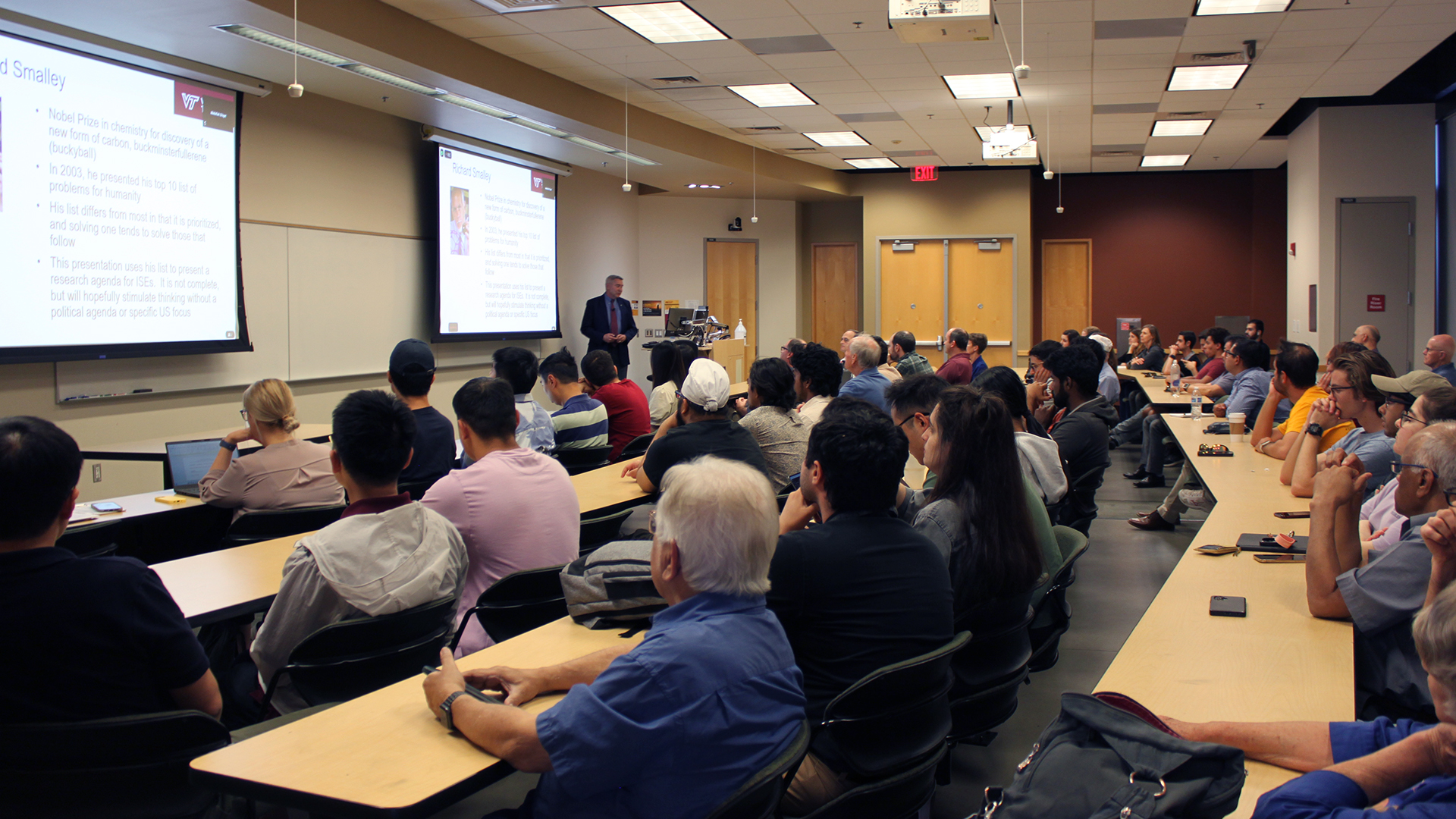
“Providing great talent with great opportunity can make a great difference.”
Such was a key part of the message delivered by G. Don Taylor, executive vice provost and the Charles O. Gordon Professor of Industrial and Systems Engineering at Virginia Tech, who recently spoke at the second annual Douglas C. Montgomery Distinguished Lecture at Arizona State University’s Tempe campus.
This April, a crowd of students, faculty and community members convened at an event presented by the School of Computing and Augmented Intelligence, part of the Ira A. Fulton Schools of Engineering at ASU, to contemplate the toughest challenges facing humanity and how industrial engineering might help solve them.
Supported by ASU Regents Professor Douglas C. Montgomery, the series brings leading experts to ASU and creates a forum to tackle the industrial engineering challenges of today and tomorrow.
Taylor checked all the boxes. The prominent systems engineer has served as principal investigator or co-principal investigator on more than 60 externally funded projects. His research has led to the publication of 10 books, more than 75 journal articles and book chapters, and more than 120 conference papers and technical reports. He is a fellow and a past president of the Institute of Industrial and Systems Engineers and a registered Professional Engineer.

Pictured from left to right: Sally C. Morton, executive vice president of ASU Knowledge Enterprise, Regent’s Professor Douglas C. Montgomery, G. Don Taylor and Ross Maciejewski, director of the School of Computing and Augmented Intelligence. Photographer: Kelly deVos/ASU
Today’s tough problems, tomorrow’s top solutions
Taylor homed in on the research agenda developed by Nobel Prize-winning American chemist Richard Smalley as the basis for his talk. In 2003, Smalley put forward his “Top Ten Problems for Humanity” in which he outlined the most essential challenges facing the world.
The problems Smalley identified were, in order of importance: energy, water, food, environment, poverty, terrorism and wars, disease, education, democracy and population.
While these problems remain daunting, Taylor told the crowd that the list is compelling because it’s prioritized. Solving one problem would likely lead to the solution of others lower on the list.
“If people have enough energy, water and food, then there are fewer things for us to fight over,” he noted.
Taylor’s lecture provided a number of surprising facts. He told attendees that, even though humanity has pumped so much groundwater that we have slightly shifted the world’s axis, one in six people worldwide still lack adequate access to clean water.
He said that industrial engineers are uniquely positioned to provide technological and management solutions. He reviewed Smalley’s list and pointed out ways that industrial engineers could help in each area, for example by improving the availability of potable water through the development of new desalinization technology.
Ross Maciejewski, director of the School of Computing and Augmented Intelligence, hosted a Q&A session at which attendees discussed how Smalley’s list was ordered, how various economic systems might handle the challenges differently, and how more privileged people could honor the fact that these issues disproportionately affect people in poorer communities.
Taylor compared Smalley’s list to the results of a recent survey in which millennials were asked to identify their most pressing concerns, saying that the overlap demonstrates awareness of these issues is transcending generations.
Smalley’s list
1. Energy
2. Water
3. Food
4. Environment
5. Poverty
6. Terrorism and wars
7. Disease
8. Education
9. Democracy
10. Population
Millennial concerns
1. Climate change
2. War (large-scale conflict)
3. Inequality
4. Poverty
5. Religious conflicts
6. Government accountability
7. Food and water security
8. Lack of education
9. Safety
10. Lack of economic opportunity
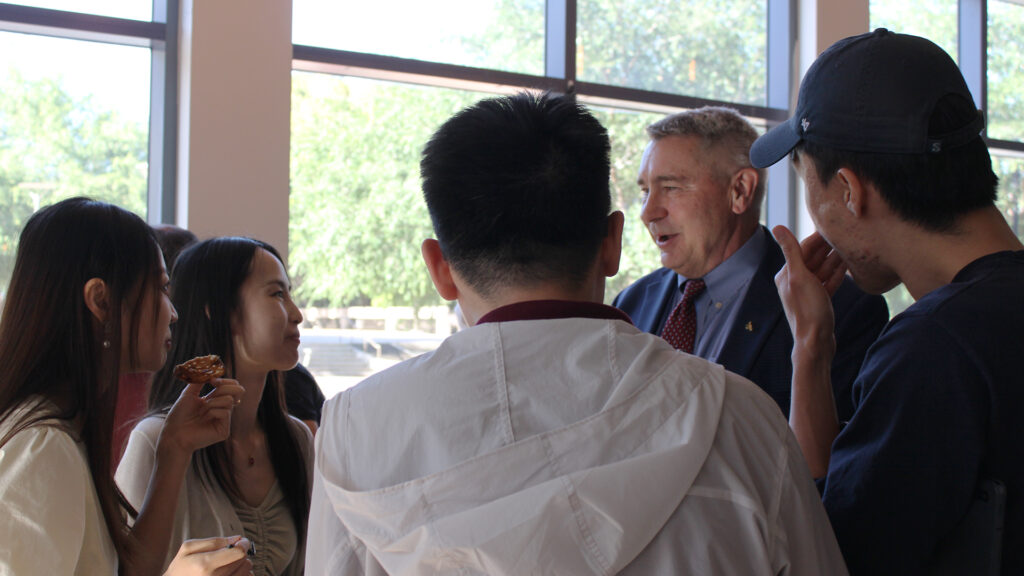
G. Don Taylor chats with students at the reception following his lecture. Taylor says he is inspired by the next generation of industrial engineers and optimistic about what they will accomplish. Photographer: Kelly deVos/ASU
The future is full of focused industrial engineers
Taylor encouraged the crowd not to be discouraged by what might be perceived as a lack of progress on many of these problems since Smalley first identified them more than 20 years ago. While emphasizing the importance of higher education, Taylor also said he feels optimistic about the current generation of students.
“Today’s students are creative, hardworking and have a lifelong desire for learning,” he said. “They are acquiring the skill sets needed to tackle these problems and driven to solve them by a socially and environmentally conscious sense of purpose.”
He also said that events like the Douglas C. Montgomery Distinguished Lecture Series provide the kind of collaborative opportunities that are needed to create real solutions.
“It’s very important to cross boundaries,” Taylor said. “We need to bring together researchers who wouldn’t necessarily interact with each other and encourage them to combine their knowledge.”
Feng Ju, program chair of the highly ranked industrial engineering program in the School of Computing and Augmented Intelligence, agrees.
“What this lecture series really provides is an excellent forum for people to come together to brainstorm,” Ju says. “Solving the world’s grand challenges will require people to work together from all disciplines and all sectors.”
Montgomery says that Taylor’s lecture perfectly captured the spirit of the series he has worked to develop.
“My objective was to bring distinguished leaders in the industrial engineering profession to ASU to share their knowledge with our students and to motivate all of us to continue learning about the important advances in our field,” Montgomery says. “Dr. Taylor did an outstanding job of this.”
Taylor concluded his lecture by encouraging attendees to play a role in solving humanity’s most pressing challenges.
“A life spent in the service of others is a life well-lived,” he said.
Watch the lecture. Use passcode ==Uu1Fux to access the recording.


